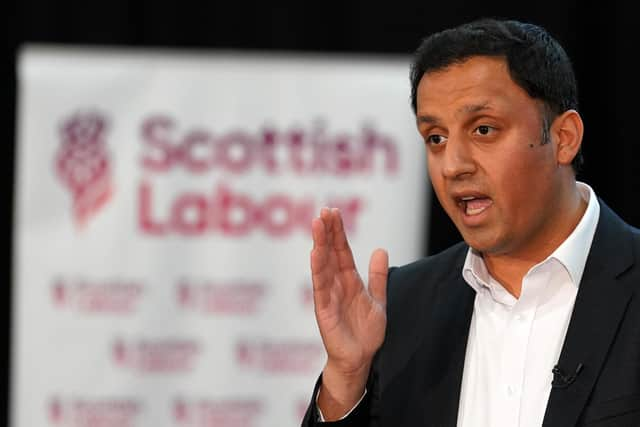Scottish Labour have tied themselves in knots over local government coalitions
Yet that is the situation Scottish Labour have put themselves in following a narrow-minded approach by Anas Sarwar.
Politically, a ban on coalitions makes perfect sense in the run up to an election and during a campaign.
Advertisement
Hide AdAdvertisement
Hide AdIt also makes sense when you are attempting to position yourself as the central opposition to the constitutional tar-pit inhabited by the SNP and the Scottish Conservatives ahead of a general election.
The problem is this is not how local government in Scotland really works.
There are only a handful of local authorities in the entire country which operate with a majority administration led by one of the main five Holyrood parties. Labour happen to run one in West Dunbartonshire, the SNP the other in Dundee.
This makes coalition working – either to create a majority or minority administration – essential to allow for councils to operate.


And what chance, post-election, Scottish Labour have gone about making it clear the approach from Sarwar would be widely ignored to pragmatically gain power in councils across Scotland.
In South Lanarkshire, it has resulted in a Labour, Liberal Democrat, Independent coalition voted through by Conservative councillors.
This often involves offering the ceremonial role of provost to a party to back a minority coalition – which is Labour’s approach in Stirling, gifting the position to the Conservatives.
Labour won’t like it, but these are formal deals even if other parties remain notionally in opposition.
Advertisement
Hide AdAdvertisement
Hide AdPlaying semantics with the facts doesn’t make the reality any less disingenuous to voters.
The SNP may gripe where they are the biggest party, but these sorts of alliances are what local government is built on and it is who can strike the best deal who usually comes up top trumps.
They do it too, just look at Glasgow.
But the Labour approach of pledging to not do these sort of backroom negotiations pre-election before jumping head-first into local deals post-election suggests an arrogance usually left to the SNP.
Labour are keen to point out the difference between informal deals with parties to prop up Labour minority administrations and ‘formal coalitions’ such as the now doomed arrangement in Edinburgh between Labour and the SNP.
But voters will not see a minority administration voted in with the support of other pro-union or pro-independence parties as anything other than a coalition, and won’t see Sarwar as anything other than someone who does not tell them the whole truth.
Want to hear more from The Scotsman's politics team? Check out the latest episode of our political podcast, The Steamie.
It's available wherever you get your podcasts, including Apple Podcasts and Spotify.
Comments
Want to join the conversation? Please or to comment on this article.

